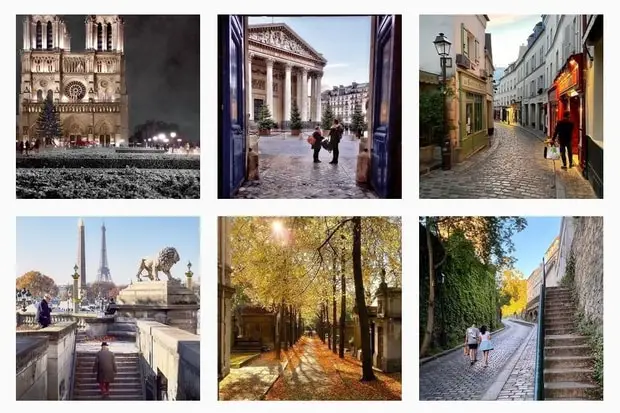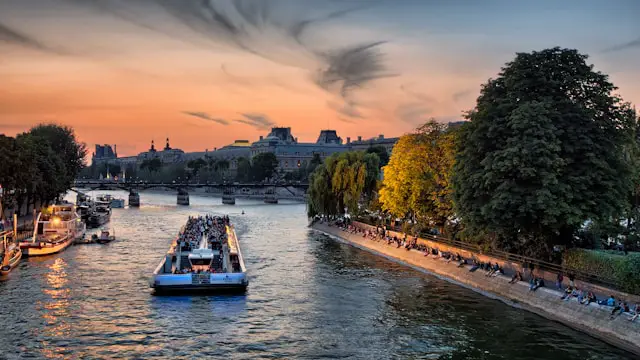Visiting France is an incredible experience, but some things might surprise you if you’re not prepared! From dining habits to daily life, here are some cultural differences that often shock tourists.
1. Stores Often Close for 2-3 Hours During Lunch

Many tourists expect businesses to stay open all day, but in France, long lunch breaks are normal.
Many small shops close between 12 or 1 PM and 2 or 3 PM so staff can enjoy a proper meal.
This is especially common in smaller towns, but even in Paris, you’ll find many places shutting down for lunch.
Plan accordingly—if you need groceries or souvenirs, get them before noon or after 3 PM!
2. Shops Closing on Sundays

Unlike in some countries where Sundays are shopping days, in France, it’s a day of rest.
Many stores, supermarkets, and boutiques are completely closed or have limited hours.
This can be frustrating if you’re used to weekend shopping, but it’s part of the slower-paced lifestyle.
Some tourist-heavy areas like the Champs-Élysées or Le Marais may have shops open, but don’t expect business as usual across the city.
3. Greeting People with Kisses Instead of Handshakes

Instead of a handshake, many French people greet each other with “la bise”—a light kiss on each cheek.
The number of kisses varies by region, but in Paris, two kisses (one on each cheek) is the norm.
While tourists aren’t expected to do it, you might see it often between friends and family.
If unsure, a polite handshake is always safe!
4. The Amount of People Who Smoke
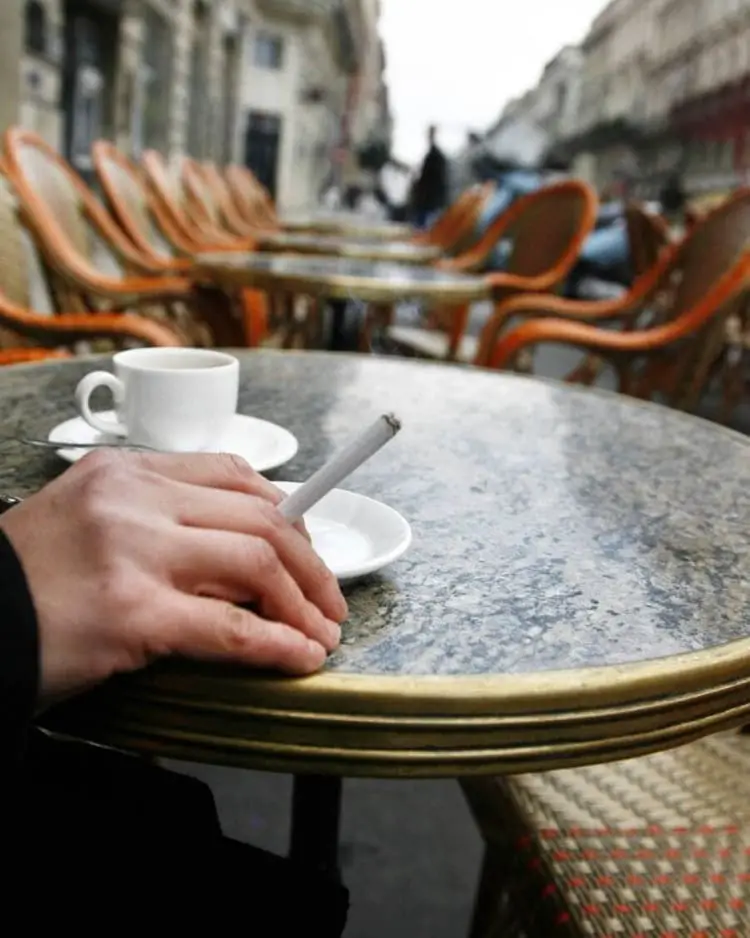
Smoking is much more common in France than in some other countries, especially in outdoor cafés, restaurant terraces, and even outside train stations.
While smoking indoors is banned, you’ll still find many people lighting up outside.
If you’re sensitive to smoke, choosing an indoor table at restaurants or cafés can help.
Otherwise, just be prepared for the smell of cigarettes as part of daily life in France.
5. How Friendly the People Are
Contrary to the stereotype, French people can be very friendly, but in a different way than some cultures expect.
They are often polite but reserved with strangers, meaning they won’t immediately start conversations or smile at everyone.
However, once you engage with them—especially after a polite “Bonjour!”—you may find them warm, helpful, and even chatty.
In smaller towns, people tend to be even friendlier than in big cities like Paris.
6. You Need to Speak a Little French
Many French people, especially in tourist areas, do speak English, but they appreciate when visitors make an effort with a few basic French phrases like “Bonjour” (hello), “Merci” (thank you), and “S’il vous plaît” (please).
However, in smaller towns or less touristy areas, English is much less common, and you may need some basic French to communicate.
Even a small effort goes a long way in getting better service and making a good impression!
7. Day Drinking Is Socially Acceptable and Even Encouraged
Voir cette publication sur Instagram
In France, having a glass of wine with lunch or sipping an apéritif in the afternoon is completely normal.
Unlike in some countries where daytime drinking might be frowned upon, here it’s a social and cultural tradition.
People enjoy a glass of rosé on a terrace, especially on weekends, without it being seen as excessive.
However, moderation is key—drinking is about enjoyment, not getting drunk.
8. Dinner Rarely Starts Before 7:30 PM
If you’re used to eating dinner early, France will feel different.
Many restaurants don’t even open for dinner until 7 PM, and locals usually eat between 8 and 9 PM.
Some tourist-friendly places might serve food earlier, but expect a quieter atmosphere until later in the evening.
If you get hungry in the afternoon, opt for a snack or an apéro (pre-dinner drink with small bites).
9. Waiters Don’t Bring the Check Unless Asked
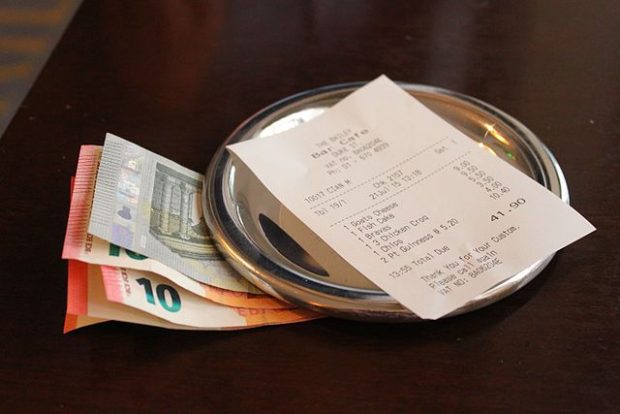
In France, dining is an experience, not a race.
Unlike in some countries where the check arrives automatically, here, you have to ask for it when you’re ready to leave.
This isn’t bad service—it’s a sign of respect, so you don’t feel rushed.
Simply say “L’addition, s’il vous plaît” (the check, please), and the waiter will bring it over.
10. Small Talk with Strangers Is Not Common
If you’re from a culture where people chat with strangers easily, France may feel a bit cold.
Parisians, in particular, tend to keep to themselves in public—they’re not unfriendly, just private.
Unlike in the U.S. or some other countries, casual small talk with strangers isn’t common.
However, once introduced, French people can be very warm and welcoming.
11. Most Locals Don’t Wear Berets or Striped Shirts

The classic French stereotype—a beret, striped shirt, and a baguette under the arm—is just that, a stereotype.
While some older men might wear berets, you won’t see many Parisians dressed like a postcard.
The real Parisian look is chic, understated, and effortlessly stylish, not cliché tourist fashion.
12. Dog Droppings on Sidewalks Are Unfortunately Common
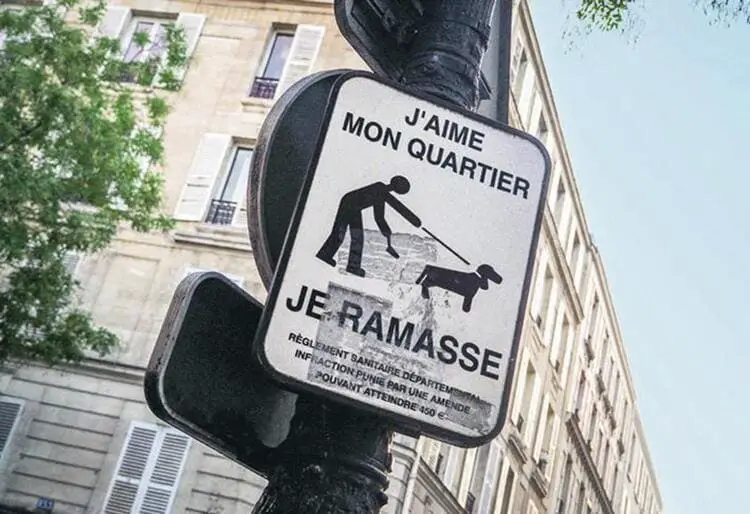
While street cleaning has improved, some dog owners still don’t pick up after their pets.
It’s especially common on smaller streets and sidewalks.
Locals often know where to step, but tourists distracted by sights can get an unpleasant surprise.
Keep an eye out, especially in residential areas!
13. Topless Sunbathing Is Normal at Many Beaches and Pools
If you visit a French beach, don’t be shocked to see women sunbathing topless—it’s completely normal and not considered inappropriate.
This is common in coastal areas and sometimes even at public pools.
French people generally have a relaxed attitude toward nudity, and it’s seen as personal choice rather than a big deal.
14. Public Displays of Affection Are Very Common
Voir cette publication sur Instagram
In France, couples openly show affection—kissing, holding hands, or cuddling in public is completely normal.
If you’re from a country where this is less common, you might be surprised at how comfortable people are with PDA.
Parks, the Métro, cafés—you’ll see it everywhere. It’s just part of the romantic Parisian atmosphere!
15. The Lack of Air Conditioning in Many Buildings

Summers in France can be hot, but air conditioning is rare, especially in the northern part of the country (including Paris) and in older buildings, hotels, and apartments.
Many places rely on fans or open windows instead.
If you’re visiting in July or August, check if your hotel has AC—or be prepared for warm nights!
16. France is More Than Just Paris

Paris is amazing, but France has so much more to offer—charming villages, stunning beaches, wine regions, and fairytale castles.
Many tourists only visit Paris, missing out on places like Provence, Normandy, the Loire Valley, and the French Riviera.
If you have time, consider adding a day trip or a few extra days to explore beyond the capital.
You’ll discover a whole different side of France!

With a passion for travel and having visited over 50 countries, Dorian is eager to share his favorite spots and expert tips to help you explore Paris and France like a local.


